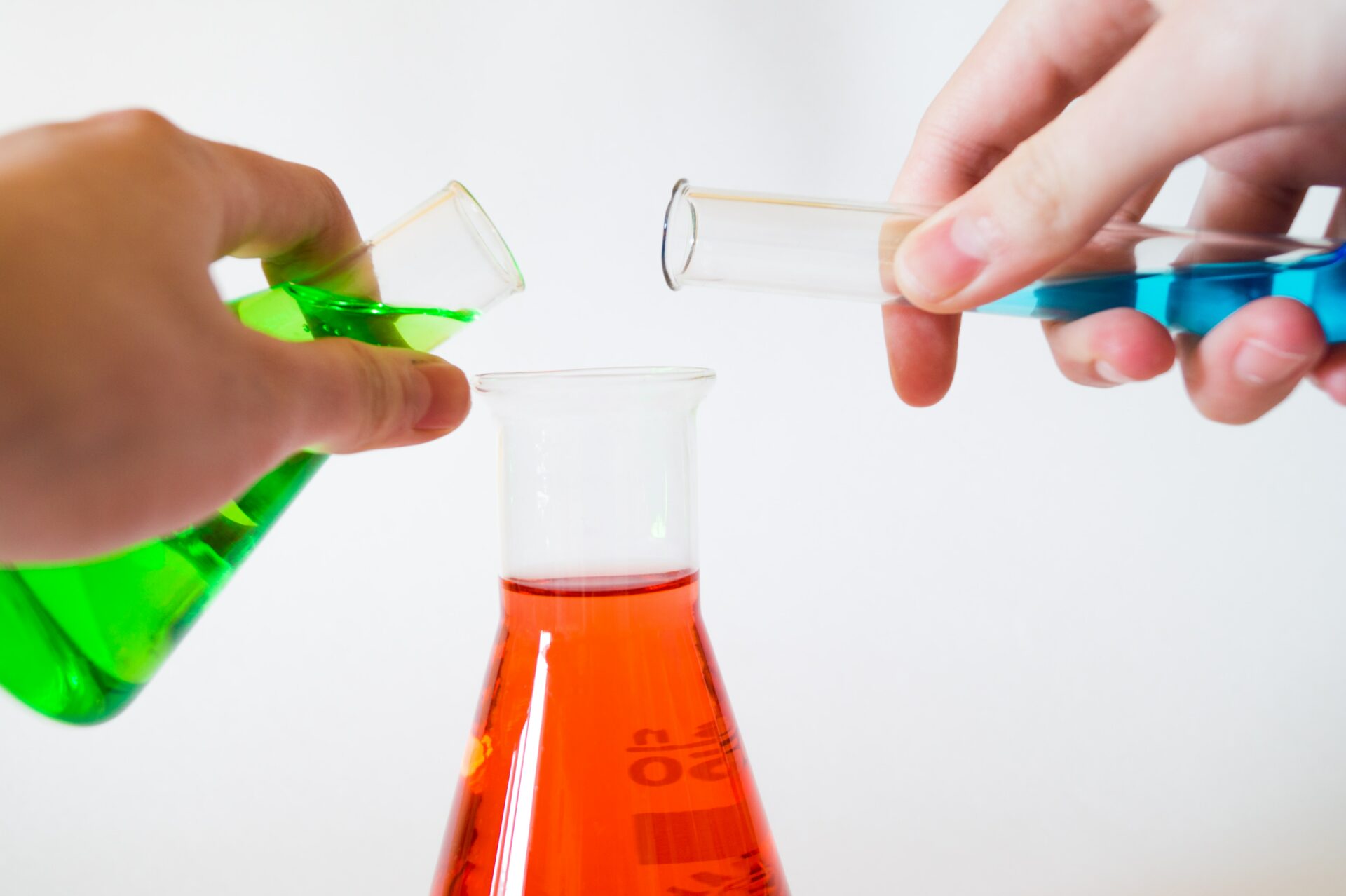Sustainability in the chemical market is becoming a challenge for industries all around the world, particularly as the younger generation of talent increasingly sees sustainability as a key factor when deciding where to work.
It is clear that traditional industrial practices are on their way out, in favour of cleaner alternatives. Materials such as hydrocarbons are vital to the manufacturing processes of different chemicals. Over time, however, such resources are becoming harder to come by – and the price of acquiring them increases accordingly.
Overcoming this issue also means taking into accountnegative environmental impacts, pressure from governments, and the need to reduce costs. Production bans have been applied by many different countries, while sustainable green solutions such as bio-diesel have been put in place to drastically reduce reliance on harmful materials.
These newly developed, sustainable “green chemicals” are used to create various textiles, as well as home-based cleaning, hygiene, and consumable products. The chemicals behind these products can be made, used, and removed in an eco-friendly way. Yet responsibly integrating these new methods throughout larger manufacturing efforts is anything but easy.
A tight fit
Chemical manufacturers such as Cargill, DuPont, Ineos AG, Koninklijke DSM NV, and Novozymes A/S are under pressure to keep upwith changing standards for green chemicals, and how they are meant to be used and recycled.
A significant amount of this pressure comes from job seekers, who prefer to devote their efforts to environmentally friendly businesses. Our own chemicals industry specialist Dahlia Chan gives valuable context:
From a Chemicals industry perspective, there is a significant surge in talent seeking opportunities with companies that focus on a sustainable business approach. This is especially so for commercial talent who feel they are better placed to engage with new businesses, as well as in client retention. This preference also reflects the ever-increasing demand for sustainability on the part of end-users.
Without a comprehensive approach to sustainability, even organic and bio-degradable compounds like ethylene can be repurposed to make harmful, plastic-based products. The stakes are high, as traditional plastic-based products and hazardous chemicals can seep into the environment and damage entire ecosystems.
At the same time, various industries need high-quality resources to produce packaging and chemical-based components like paints and solvents. Moreover, the economic impacts of COVID-19 have dropped manufacturing levels, with the resulting financial pressure causing businesses to think first and foremost about their own bottom line.
The lower profit margins of greener products – as compared to fossil fuel-based chemicals – have led to weaker demand from different market segments, further reducing the potential for profit. Yet employees, customers, and the planet itself all demand progress on this front.
Making it work
In such an economic climate, the move toward sustainability has been an especially challenging one. But engineers are problem-solvers above all else, and every problem has a solution.
The shift from fossil fuels toward bio-based products has been made possible by Bio-polymers, Bio-organic acids, Bio-alcohols, and Bio-ketones. These chemicals are significantly more environmentally friendly than their predecessors, and are made from bio-feedstock such as wheat, corn, sugar cane, cassava, and vegetable oils. They are very much renewable, and are now used in most industries that produce plastics and chemicals.
These cost-effective solutions have led many retail businesses and large supermarkets around the world to ban products that contain substances like palm oil and Triclosan, which had been widely used in hygiene products. A related step forward has been the wide adoption of bio-degradable organic plastic shopping bags.
The cheaper and more successful these solutions become, the stronger the cultural current will be towards accepting and implementing them – in turn, raising the PR cost for businesses that cling to older and dirtier methods of production.
The green chemical industry is now estimated to be worth around $80 billion, and is expected to experience an almost 10% CAGR through 2023. Despite some of the economic challenges, many see this trend as a good investment opportunity over the coming years.
Indeed, going green has many hidden advantages such as lowering long-term costs, improving public relations as well as employee morale, and opening up new business opportunities. Embracing sustainable solutions can also help companies avoid pressurefrom government regulators and environmental activists. Lastly, of course, businesses with better environmental reputations will have an easier time attracting top talent.
As companies look to keep up with sustainability standards, a qualified and assertive workforce will need to be at the centre of their efforts. New projects benefit from fresh talent, increasing efficiency by developing and refining environmentally friendly methods.
The process behind the process
Connexus Search offers organisations around the world the best and most competitive talent solutions available anywhere. Our diverse network operates across major worldwide financial and production centres, adding value up and down the supply chain.
Connexus covers a wide range of industries including chemicals, technology manufacturing, commodity trading, pulp, paper and packaging, food and beverages, agriculture, and consumer goods.
We pride ourselves in tackling complex talent requests, and typically deliver our solutions within days. To learn more about how we can help you develop sustainable green solutions and make the most of future opportunities, get in touch with us today.









